第52章 CHAPTER XI(3)
"I should get into the habit of making a note of it, if I were you," grumbled George; "it's a manoeuvre that will probably occur again more than once."
We faced about, and walked in the other direction. At the end of forty minutes' climbing we again emerged upon an opening, and again the village lay just under our feet. On this occasion it was south of us.
"This is very extraordinary," said Harris.
"I see nothing remarkable about it," said George. "If you walk steadily round a village it is only natural that now and then you get a glimpse of it. Myself, I am glad to see it. It proves to me that we are not utterly lost."
"It ought to be the other side of us," said Harris.
"It will be in another hour or so," said George, "if we keep on."
I said little myself; I was vexed with both of them; but I was glad to notice George evidently growing cross with Harris. It was absurd of Harris to fancy he could find the way by the sun.
"I wish I knew," said Harris, thoughtfully, "for certain whether that bisecting line points to the north or to the south."
"I should make up my mind about it," said George; "it's an important point."
"It's impossible it can be the north," said Harris, "and I'll tell you why."
"You needn't trouble," said George; "I am quite prepared to believe it isn't."
"You said just now it was," said Harris, reproachfully.
"I said nothing of the sort," retorted George. "I said you said it was--a very different thing. If you think it isn't, let's go the other way. It'll be a change, at all events."
So Harris worked things out according to the contrary calculation, and again we plunged into the wood; and again after half an hour's stiff climbing we came in view of that same village. True, we were a little higher, and this time it lay between us and the sun.
"I think," said George, as he stood looking down at it, "this is the best view we've had of it, as yet. There is only one other point from which we can see it. After that, I propose we go down into it and get some rest."
"I don't believe it's the same village," said Harris; "it can't be."
"There's no mistaking that church," said George. "But maybe it is a case on all fours with that Prague statue. Possibly, the authorities hereabout have had made some life-sized models of that village, and have stuck them about the Forest to see where the thing would look best. Anyhow, which way do we go now?"
"I don't know," said Harris, "and I don't care. I have done my best; you've done nothing but grumble, and confuse me."
"I may have been critical," admitted George "but look at the thing from my point of view. One of you says he's got an instinct, and leads me to a wasps' nest in the middle of a wood."
"I can't help wasps building in a wood," I replied.
"I don't say you can," answered George. "I am not arguing; I am merely stating incontrovertible facts. The other one, who leads me up and down hill for hours on scientific principles, doesn't know the north from the south, and is never quite sure whether he's turned round or whether he hasn't. Personally, I profess to no instincts beyond the ordinary, nor am I a scientist. But two fields off I can see a man. I am going to offer him the worth of the hay he is cutting, which I estimate at one mark fifty pfennig, to leave his work, and lead me to within sight of Todtmoos. If you two fellows like to follow, you can. If not, you can start another system and work it out by yourselves."
George's plan lacked both originality and aplomb, but at the moment it appealed to us. Fortunately, we had worked round to a very short distance away from the spot where we had originally gone wrong; with the result that, aided by the gentleman of the scythe, we recovered the road, and reached Todtmoos four hours later than we had calculated to reach it, with an appetite that took forty-five minutes' steady work in silence to abate.
From Todtmoos we had intended to walk down to the Rhine; but having regard to our extra exertions of the morning, we decided to promenade in a carriage, as the French would say: and for this purpose hired a picturesque-looking vehicle, drawn by a horse that I should have called barrel-bodied but for contrast with his driver, in comparison with whom he was angular. In Germany every vehicle is arranged for a pair of horses, but drawn generally by one. This gives to the equipage a lop-sided appearance, according to our notions, but it is held here to indicate style. The idea to be conveyed is that you usually drive a pair of horses, but that for the moment you have mislaid the other one. The German driver is not what we should call a first-class whip. He is at his best when he is asleep. Then, at all events, he is harmless; and the horse being, generally speaking, intelligent and experienced, progress under these conditions is comparatively safe. If in Germany they could only train the horse to collect the money at the end of the journey, there would be no need for a coachman at all.